Jan. 7 to Jan. 13
When the Chinese Nationalist Party (KMT) moved the Republic of China (ROC) government to Taipei on Dec. 7, 1949, it was without its president.
Not Chiang Kai-shek (蔣介石), who also wasn’t in Taipei and who had stepped down as president 10 months earlier. It was Li Tsung-jen (李宗仁), who had taken over in an interim role.
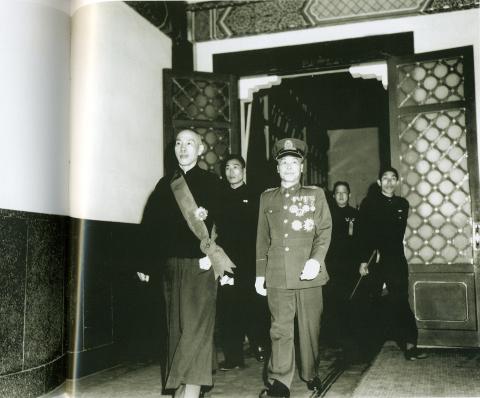
Photo courtesy of Wikimedia Commons
Li was on medical leave in the US at that point. He refused all calls to head to Taiwan, remaining stateside until 1965 when he returned to China. Meanwhile, he became a vocal critic of Chiang and helped start and fund the Third Force (第三勢力), a Hong Kong-based anti-Chiang and anti-communist organization.
Chiang resumed his presidency on March 1, 1950 and, through Martial Law era provisions, clung on to the title until he died in 1975.
PRESIDENT FOR PEACE
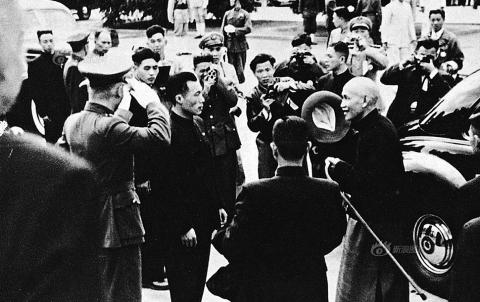
Photo courtesy of Wikimedia Commons
According to Breaking With the Past, a Hoover Institute publication, the KMT was in turmoil by mid-1945 as “factional struggles, corruption and low morale were on the increase.”
The second phase of the Chinese Civil War had just started, and public support for the KMT was plummeting. The situation continued to worsen and by late 1948, even the US was pressuring Chiang to step down and allow the KMT to negotiate for peace with the Chinese Communist Party (CCP).
Chiang resisted for months, but in early 1949, he left the KMT capital of Nanjing for his hometown. He was “seen off in his luxurious Skymaster,” according to a Reuters report, with “no trace of emotion on his face.” Official statements used the word “temporary absence” because “he wanted to leave the way open for possible return to power if peace negotiations failed,” the report stated.
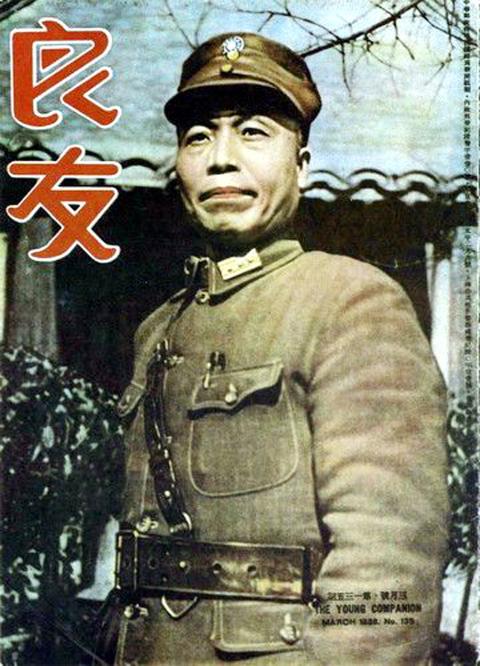
Photo courtesy of Wikimedia Commons
However, Chiang retained considerable power as KMT chairman and commander of its armed forces. Li’s peace talks fell through and the CCP resumed their advance in April, while the KMT continued moving its institutions and possessions to Taiwan as it lost ground.
Li and Chiang’s bad blood trace back to 1930 when Chiang embarrassed Li and his coalition of warlords who attacked Chiang’s headquarters of Nanjing. Their relationship only worsened during Li’s presidency. In his memoir, Li accuses Chiang of sabotaging his efforts from the shadows.
“This is the third time you’ve retired,” he writes. “You assured [us] repeatedly that you would stay away from politics for at least the next five years, which to me meant that you would trust me with the job and let me operate freely. But what you did was the complete opposite.”
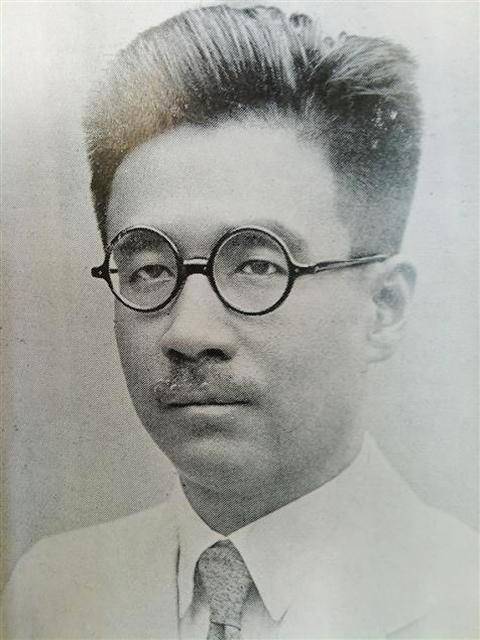
Photo courtesy of Wikimedia Commons
He continues to attack Chiang in a long list of accusations of misconduct, concluding: “These are all absurd actions where you did not keep your promises and had no respect for government authority!”
‘PLAGUE ON BOTH YOUR HOUSES’
Li’s flight to the US was “a decision when [his] mood was best expressed by the oft-repeated phrase, ‘a plague on both your houses,’ and with the hope that an aseptic and democratic ‘third force’ could be established,” writes Robert Bedski in the study, Li Tsung-jen and the Demise of China’s ‘Third Force.’
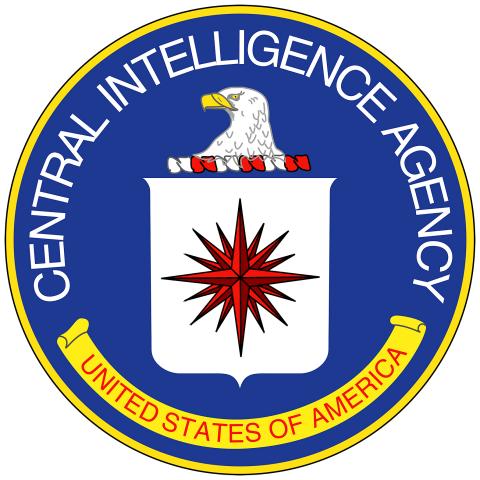
Photo courtesy of Wikimedia Commons
In March 1950, Li told the Associated Press that the people would rise and overthrow both the CCP and KMT, and that the CCP only won because of Chiang’s incompetence. The KMT impeached Li in response, but he remained vice president. When Chiang bended the rules to extend his reign in 1954, Li wrote a him a letter slamming his actions as illegal, and the KMT stripped him of the vice presidency.
While Li was still in China, he started building a Third Force movement with other dissident KMT members to oppose both the KMT and CCP. The movement relocated to Hong Kong as the CCP overran China.
The US, “disgusted by the corruption and, more importantly, failure of Chiang Kai-shek’s Nationalist armies and party and repelled by the Communists’ revolutionary actions and violent class warfare,” also supported the movement, writes Roger Jeans in the book, The CIA and Third Force Movements in China during the Early Cold War.
“While the US State Department reported on third forces, the CIA launched a two-prong effort to actively support these groups with money, advisors and arms,” Jeans writes.
The efforts led to the creation of several organizations in Hong Kong, including the Fighting League for Chinese Freedom and Democracy (中國自由民主戰鬥聯盟). It spread its ideals through their Voice of China magazine, and even launched several failed military raids on the coast of China in 1952 and 1953.
CHIANG’S HEADACHE
Chiang was watching them closely from Taiwan. The KMT fed intel to Hong Kong’s British rulers, who sought to suppress the Third Force. Chiang also sent agents to Hong Kong in 1951 to persuade Third Force members to join him in Taiwan. They refused on the grounds that Chiang had turned Taiwan into an authoritarian military state where people were arrested without reason. They also accused him of nepotism toward his son, Chiang Ching-kuo (蔣經國).
Chiang seemed quite bothered by the Third Force, frequently mentioning them in his diary. He was especially angry with the Voice of China, of which he wrote, “attacked and insulted my son and I even more severely than they did the Communists. Their crimes cannot be forgiven.”
The offending article is likely a 1951 editorial titled “Our stance toward Taiwan,” (我們對台灣的態度), which called him a “malignant tumor who treats the country as his personal property.”
“This tumor has led to the miscarriage of democracy in China, and it is also hindering the anti-communism efforts in Taiwan. If we don’t remove the tumor, it will lead to the demise of the Republic of China government’s refuge and anti-communist base of Taiwan.”
In 1953, pro-Taiwan Republicans took power in the US. Chiang convinced them that it was contradictory to support both Taiwan and the Third Force, and in 1954 the CIA pulled its support. The Third Force collapsed quickly.
Taiwan in Time, a column about Taiwan’s history that is published every Sunday, spotlights important or interesting events around the nation that have anniversaries this week.

A vaccine to fight dementia? It turns out there may already be one — shots that prevent painful shingles also appear to protect aging brains. A new study found shingles vaccination cut older adults’ risk of developing dementia over the next seven years by 20 percent. The research, published Wednesday in the journal Nature, is part of growing understanding about how many factors influence brain health as we age — and what we can do about it. “It’s a very robust finding,” said lead researcher Pascal Geldsetzer of Stanford University. And “women seem to benefit more,” important as they’re at higher risk of

Eric Finkelstein is a world record junkie. The American’s Guinness World Records include the largest flag mosaic made from table tennis balls, the longest table tennis serve and eating at the most Michelin-starred restaurants in 24 hours in New York. Many would probably share the opinion of Finkelstein’s sister when talking about his records: “You’re a lunatic.” But that’s not stopping him from his next big feat, and this time he is teaming up with his wife, Taiwanese native Jackie Cheng (鄭佳祺): visit and purchase a

April 7 to April 13 After spending over two years with the Republic of China (ROC) Army, A-Mei (阿美) boarded a ship in April 1947 bound for Taiwan. But instead of walking on board with his comrades, his roughly 5-tonne body was lifted using a cargo net. He wasn’t the only elephant; A-Lan (阿蘭) and A-Pei (阿沛) were also on board. The trio had been through hell since they’d been captured by the Japanese Army in Myanmar to transport supplies during World War II. The pachyderms were seized by the ROC New 1st Army’s 30th Division in January 1945, serving

The People’s Republic of China (PRC) last week offered us a glimpse of the violence it plans against Taiwan, with two days of blockade drills conducted around the nation and live-fire exercises not far away in the East China Sea. The PRC said it had practiced hitting “simulated targets of key ports and energy facilities.” Taiwan confirmed on Thursday that PRC Coast Guard ships were directed by the its Eastern Theater Command, meaning that they are assumed to be military assets in a confrontation. Because of this, the number of assets available to the PRC navy is far, far bigger